Ill Tell You All About It When I See U Again
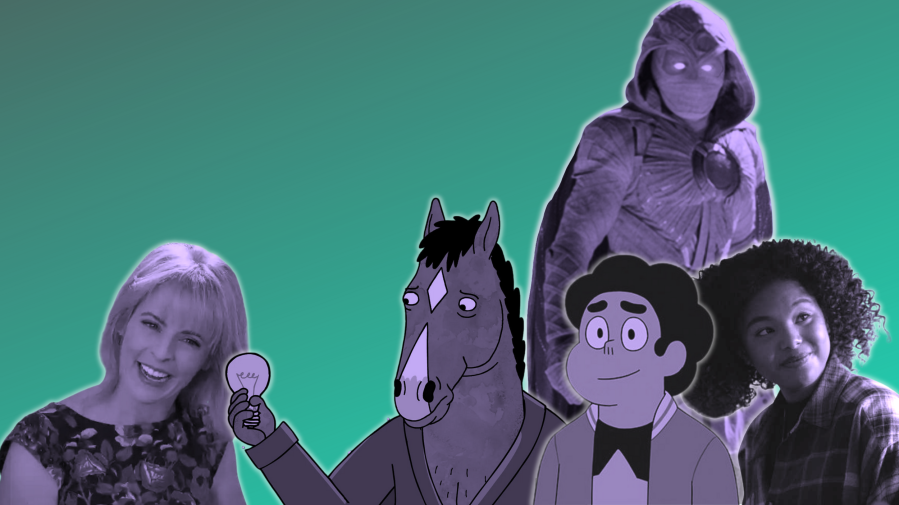
Every May, we acknowledge Mental Health Awareness Month, which gives us space to hash out and prioritize our mental health and mental illness. And so, how does popular entertainment figure into this discussion?
It'south no secret that representation matters. (If you desire a by-the-numbers wait, bank check out our in-depth coverage of mental affliction representation in film — the numbers hold pretty true for TV, too.) Without a uncertainty, seeing accurate, nuanced depictions of mental disease and disorders on screen not only helps folks living with those illnesses and disorders experience seen and less lonely, but such portrayals of real-life experiences can be a way to educate others, build support systems, and dispel harmful misinformation.
With this in heed, we're taking a look at some of the TV shows that, in the last few years, accept brought nifty mental illness representation to the small screen. This isn't an exhaustive listing, by any means, and these shows also don't get it right 100 percent of the time. Still, we're happy to see everything from Moon Knight to BoJack Horseman helping to move the punch.
Editor's Note: This article contains mentions of diverse mental illnesses and mental health disorders every bit well as discussions of how some of these illnesses and disorders are portrayed, both accurately and poorly, in media. Additionally, while the selected shows depict mental illness and mental health disorders accurately for the nearly office, information technology'southward of import to note that these depictions may not resonate for some readers as everyone'southward experience with mental affliction and mental health disorders is nuanced and specific.
Shows That Get Their Depictions of Mental Disease (Mostly) Right
In the last decade or so, a few standout stories have made not bad strides by centering lived experiences; depicting characters who seek handling and back up; and eschewing stigma — or, at least, having the main character navigate it authentically. Another common thread? There'southward no catholicon respond.
Moon Knight (2022)
The latest Curiosity Cinematic Universe (MCU) show to hit Disney+ is Moon Knight. Starring Oscar Isaac, the series is based on a lesser-known comic volume character — and centers a protagonist with a less-discussed mental disorder, Dissociative Identity Disorder (DID). Formerly known as the arguably more stigmatizing multiple personality disorder, DID has certainly been represented in TV and motion picture, just not very well, for the most part.
A person with DID has two or more distinct personalities. In Moon Knight's airplane pilot, Steven Grant (Isaac) learns of his other personality, Marc Spector (as well Isaac). In short, DID is a response to trauma; oftentimes a kid may protect themselves by dissociating — that is, disconnecting their mind from their body. In a sense, Steven/Marc encephalon split into ii distinct personalities as a trauma response.
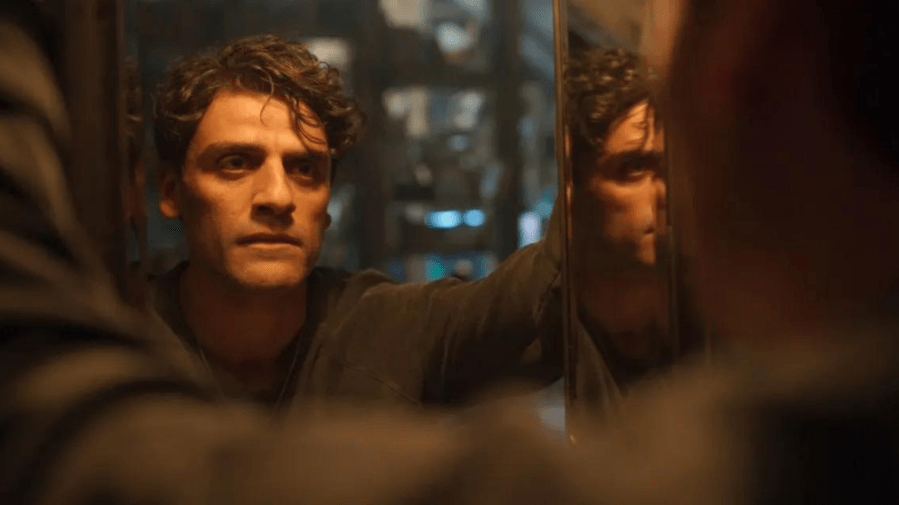
While Moon Knight'due south depiction of DID isn't perfect, it does accurately describe a few mutual experiences shared past folks with DID. For starters, there's the singled-out personalities, but then there's too the Steven's awareness of Marc and vice versa (the level of awareness more often than not varies from person to person) and their power to communicate with each other. Sometimes, a person with DID will form a personality around a popular culture inspiration, which is another chemical element the MCU show touches on.
All in all, the superhero genre, and Telly and picture show's demand for dramatic tension, don't e'er gel perfectly with representations of mental illness and disorders, but we appreciate the gentler, more than authentic look portrayed here.
The L Word: Generation Q (2019–)
Okay, it's no hugger-mugger that the original L Give-and-take didn't take the best depictions of therapy. Frequently, the couples therapy sessions that Bette (Jennifer Beals) and Tina (Laurel Holloman) attended were cringey at best and apartment-out "expect, how is this okay?" at worst. But, in the sequel series, the former couple's daughter, Angie (Jordan Hull) proves that she has a bit more emotional intelligence than her moms.
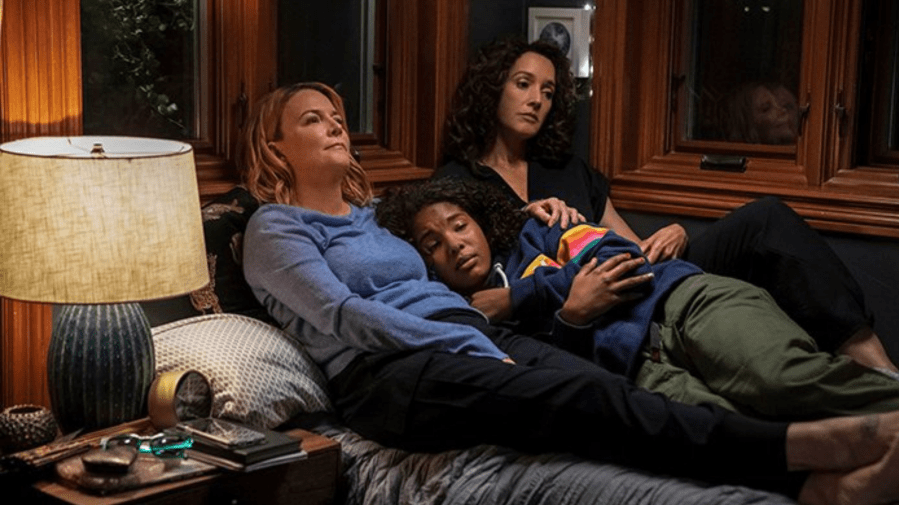
In the second season of The 50 Discussion: Generation Q, Angie is on a mission to learn more about her donor. At first, her moms are adamant that she needs to wait until she'south 18 — that'south something they promised the donor, besides — but when Angie takes a 23andMe-blazon test and discovers the identity of her one-half-sis, things have another rough plough. As if deciding whether or not to meet her donor wasn't hard enough, Angie grapples with the fact that he has a terminal illness. She may non ever meet him. Or she could save him by donating 1 of her kidneys.
Manifestly, this causes a lot of anxiety; Angie experiences panic attacks and depressive episodes, but she also has the wherewithal to ask for what she needs: therapy. We don't often see characters, allow lone teens, advocating for themselves like this or being supported by their family.
This Is United states of america (2016–22)
While many viewers take written off This Is Us every bit a bit as well melodramatic or saccharine, the generation-spanning network striking does do right by Randall Pearson (Sterling Thousand. Brownish) when information technology comes to his mental health. As the near straight-laced, responsible and empathic sibling, Randall shouldered a lot growing up. On acme of that, he grew up surrounded by white family unit members and, for near of his life, didn't know anything about his nativity parents.
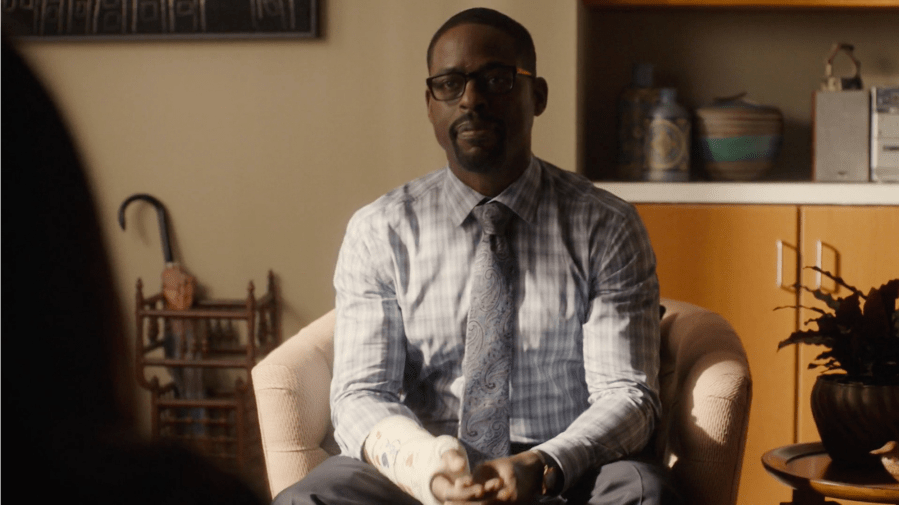
Afterward a burglary shakes Randall and his family, he can't seem to regain his composure. On top of that, he discovers some new information most his late biological father and mother. And he'south getting deep into his political career; adopting a third teenage kid; and navigating COVID-19, an ailing mom (Mandy Moore) and (unfortunately) holding his white siblings' hands through the resurgence of the Black Lives Matter movement.
Randall has e'er prided himself on existence self-sufficient. Even when his anxiety is high, he handles it. He believes he has to exist strong for everyone else. Eventually his wife, Beth (Susan Kelechi Watson), helps him run into that seeking support isn't a sign of weakness or failure. Once he's in the therapist's office, Randall however has misgivings — he'south a smart, cocky-aware guy, after all. In the end, he discovers not but the value of therapy, but of finding a Black therapist with whom he has a kind of shorthand.
Black-ish (2014–22)
Despite its prevalence, in that location aren't many onscreen depictions of postpartum depression (PPD). Nevertheless, Blackness-ish, the ABC comedy, gave us an incredibly powerful await into it, through the eyes of Rainbow Johnson (Tracee Ellis Ross). Initially, the episode, "Mother Nature," aired on World Mental Health Day — an added means of raising sensation.
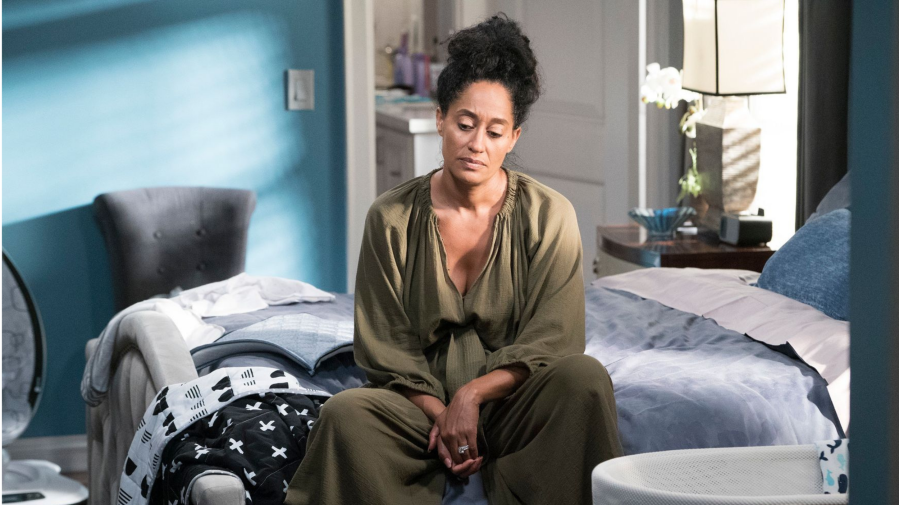
In the episode, Rainbow is overwhelmed by what she experiences afterward giving birth to DeVante. Even her family isn't sure how to support her while she's navigating PPD. Corey Nickerson, a writer and executive producer on the prove, drew from her ain experiences with PPD to arts and crafts the episode. Once the topic was brought up in the writers' room, a number of people contributed their own lived experiences to the chat, too.
Clearly, PPD isn't discussed enough — or openly. In the episode, Ross digs deep, giving an emotional, strained performance that nosotros won't before long forget. "Nosotros accept this great character, a strong, nifty mom, a successful physician," Nickerson told Diverseness. "Why don't we endeavor to show women that it's OK to be dealing with something like this and still exist skillful moms?"
Steven Universe (2013–19) & Steven Universe Future (2019–xx)
Created by Rebecca Carbohydrate for Cartoon Network, Steven Universe tells the coming-of-age story of the titular boy (Zach Callison). Although Steven's dad is a motorcar wash-owning rock musician, his mom, Rose Quartz, was a Gem — a magical, humanoid alien from outer space.
Years ago, Rose led her team of rebel Crystal Gems in a war against their alien Homeworld, all in an effort to protect Earth. At present, Steven has inherited her powers, life-strength, bulldoze to protect Earth — and, as it turns out, Rose's not-so-sterling legacy.
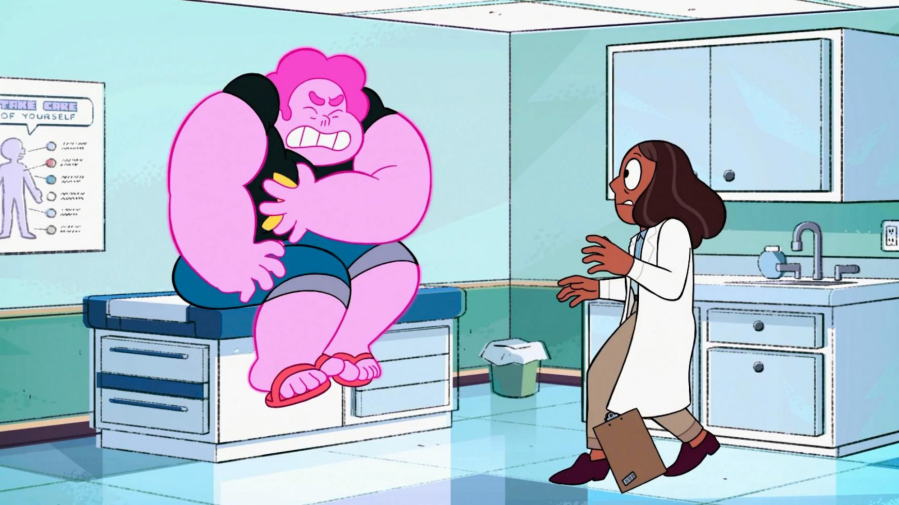
Steven Universe Future, the sequel serial, makes even more revolutionary strides in terms of representing mental illness. Steven has saved the world(s) and is trying to find his identify in everything. "Information technology'due south [his trunk and abilities that he inherited from Rose] making him whatever he needs to be to get out of a life-threatening situation," Carbohydrate explained in an interview about Future. "The problem is, he'southward not in a life-threatening situation [anymore], merely his trunk has learned to react that way." Steven pushes aside his trauma and continues putting others beginning. Eventually, he receives a post-traumatic stress disorder (PTSD) diagnosis.
BoJack Horseman (2014–twenty)
BoJack (Will Arnett), an anthropomorphic equus caballus, is a washed-up TV star. Back in the '90s, he played the dad on a very Full Business firm-esque sitcom. These days, he's self-loathing and ever has something harsh to say. Merely, at his cadre, BoJack has depression likewise as substance-utilise disorder. He just isn't managing it well — or at all.
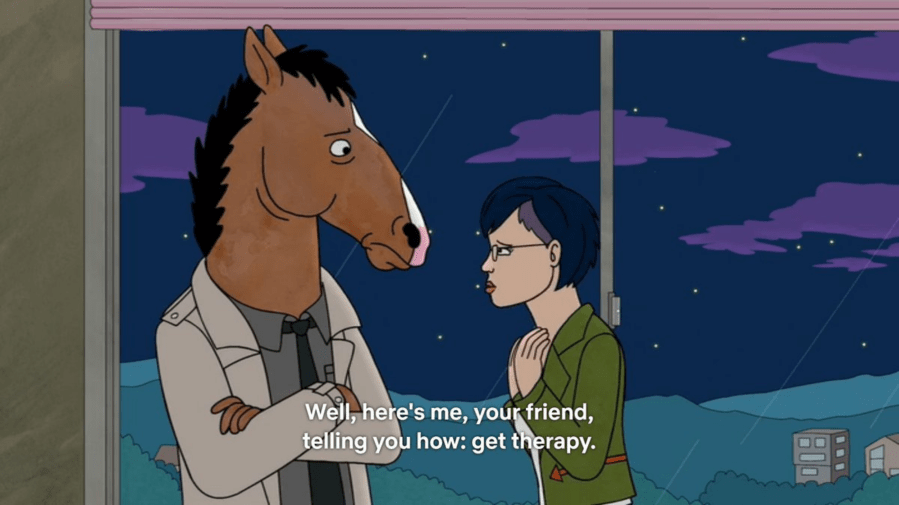
The bear witness does a great job of making sure BoJack is held answerable for his toxic and harmful behavior. Aye, he'southward mentally sick, but his depression and substance-use disorder aren't excuses for pain others. They are, however, reasons for some of his behavior. In non managing his mental affliction, BoJack further harms himself and his friends and colleagues.
And, as Adam Feely points out on Impact, "In other portrayals of mental health in entertainment, the character's mental illness is show to be caused by an isolated event. This is what makes BoJack Horseman so authentic" — the characters' mental illness tin can't be neatly traced back to one traumatic moment. In the cease, BoJack isn't suddenly "cured," merely he is on a path total of growth and healing.
Lady Dynamite (2016–17)
Loosely based on comedian (and creator/star) Maria Bamford'southward experience beingness hospitalized for bipolar disorder, Lady Dynamite doesn't treat the main character's mental disease as an obstacle or equally an excuse for surreal or comic moments.
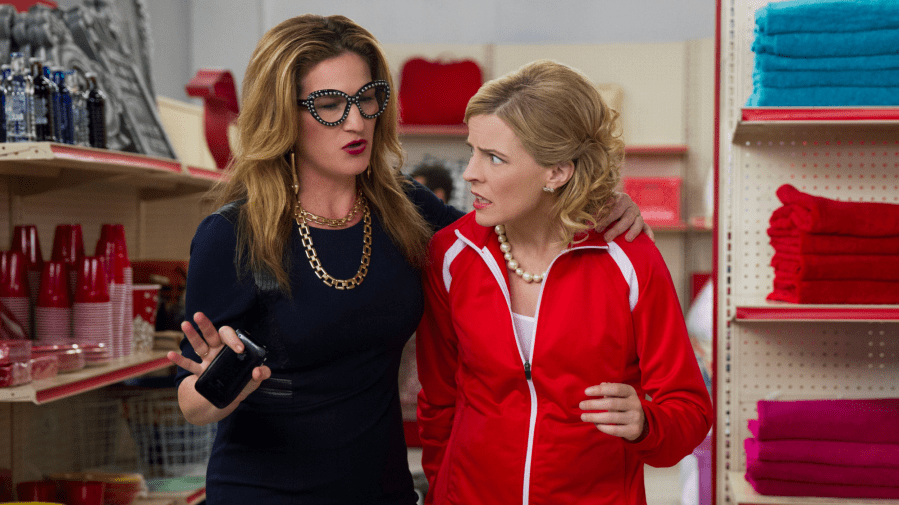
Writing for Slate, Evelyn Anne Clauson argues that the show builds Bamford's bipolar disorder "into the very material of its world… It's the rare comedy that shows us that the reality of mental illness is that darkness can coexist with creativity and fun and promise."
Crazy Ex-Girlfriend (2015–19)
Although at first this show seems like it will exist all over-the-top musical numbers and a lot of the primary grapheme Rebecca (creator Rachel Bloom) harping on her ex, Crazy Ex-Girlfriend actually depicts a adult female who is triggered by intimacy and relationships and who must navigate depression, feet, OCD, fixation and borderline personality disorder.
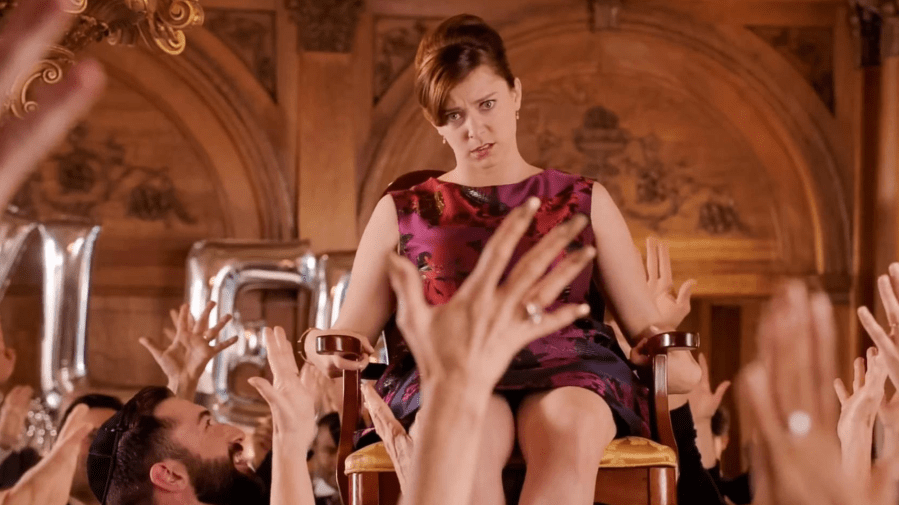
Throughout the show, Rebecca is unwilling to really open upward to her therapist — a source of frustration for the viewer, which, in a way, helps underscore how of import seeking handling really is for folks with mental illness. Writing for Self, Claire Gillespie notes that "At the crux of Crazy Ex-Girlfriend'southward success is its understanding that mental illness doesn't terminate with a diagnosis."
One Mean solar day at a Time (2017–20)
With 3 strong seasons on Netflix, this heartfelt reboot of the classic Norman Lear sitcom centers on the Cuban-American Alvarez family. Without sacrificing a modern perspective — and the desire to deal with topics other sitcoms would balk at — One Day at a Fourth dimension still holds onto that filmed-in-front-of-a-live-studio-audience feel. Apart from existence a neat comedy, this reboot stands out because of the way it holds space for those who may not have seen their own lives and concerns reflected in the sitcoms of yesteryear.
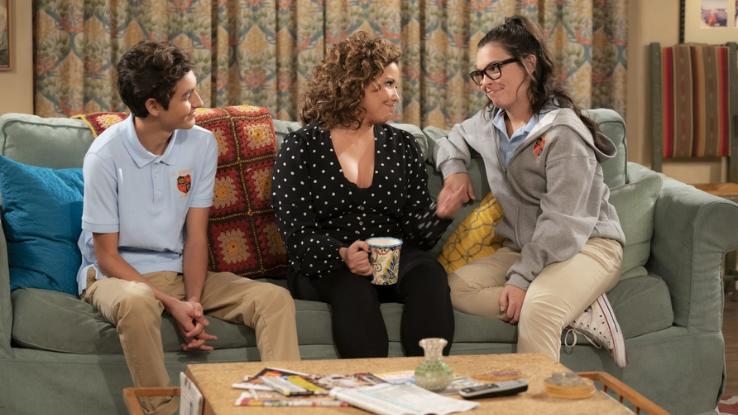
When information technology comes to mental health disorders and mental disease, One Day at a Fourth dimension's master character, Penelope Alvarez (Justina Machado), lives with mail service-traumatic stress, which stems from her time equally a Us Army Nurse Corps veteran. The show confronts the stigma surrounding mental affliction and disorders head-on: Penelope grapples with sharing her diagnosis, attention a support group, asking for help, and taking medication — all of which makes this honest portrayal incredibly important.
You're the Worst (2014–19)
In the 2d season of FXX's edgy dramedy You're the Worst, 1 of the show's principal characters, Gretchen (Aya Cash), spends a day drinking and essentially running abroad from a depressive episode. Of class, she can't outrun it. Moreover, she realizes she tin can't hide her diagnosed clinical depression from her partner.
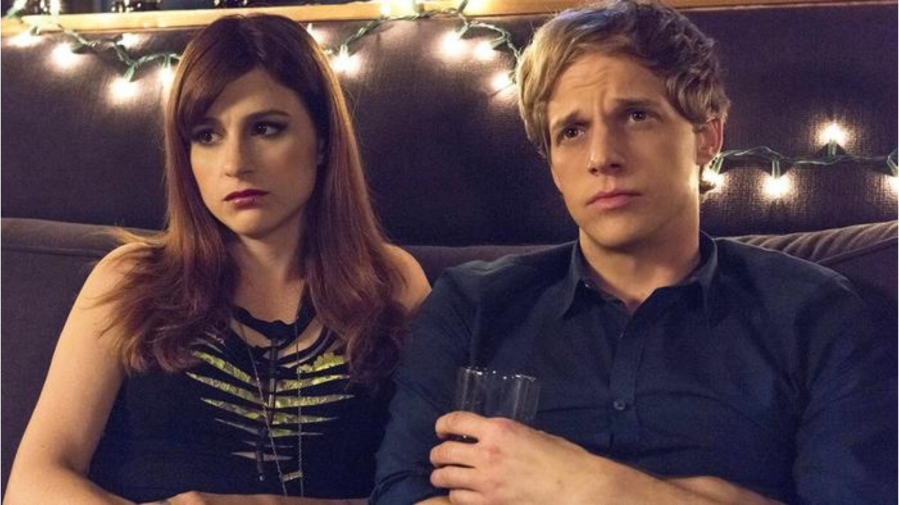
Fearing she'll amerce him, Gretchen downplays her clinical depression, just, as Vulture points out, "what's especially striking near this scene is that information technology takes place in an episode that is, by and large, overly comic." That is, the surrounding circumstances are funny, merely the character's mental health is never the punchline.
Sex activity Didactics (2019–)
Although Jackson Marchetti (Kedar Williams-Sterling) isn't Sexual activity Education's protagonist, he is i of the many ensemble members who really shines every bit the series goes on. Only, since the showtime, he'south likewise been one of the characters who's against his mental health concerns head on. Jackson is form president, gets superlative marks and is grooming to be a professional person swimmer. That's a lot of pressure to shoulder; one of his moms, Sofia (Ted Lasso's Hannah Waddingham), certainly doesn't help.
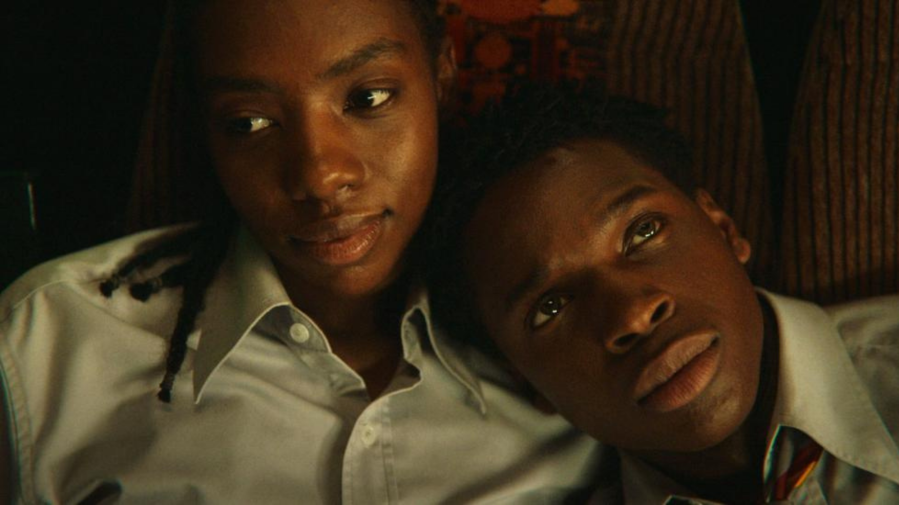
For Jackson's entire life, Sofia has been committed to his swimming ambitions — peradventure more and so than Jackson. In fact, he slowly comes to the realization that he's pursuing athletics more for her than himself. All of that pressure and anxiety is simply as well much for him. In one scene, Jackson talks pretty openly virtually taking medication and managing his feet, and it's powerful to see him advocate for himself, especially when information technology means against his mom.
Source: https://www.ask.com/culture/shows-that-depict-mental-illness-well?utm_content=params%3Ao%3D740004%26ad%3DdirN%26qo%3DserpIndex
0 Response to "Ill Tell You All About It When I See U Again"
Postar um comentário